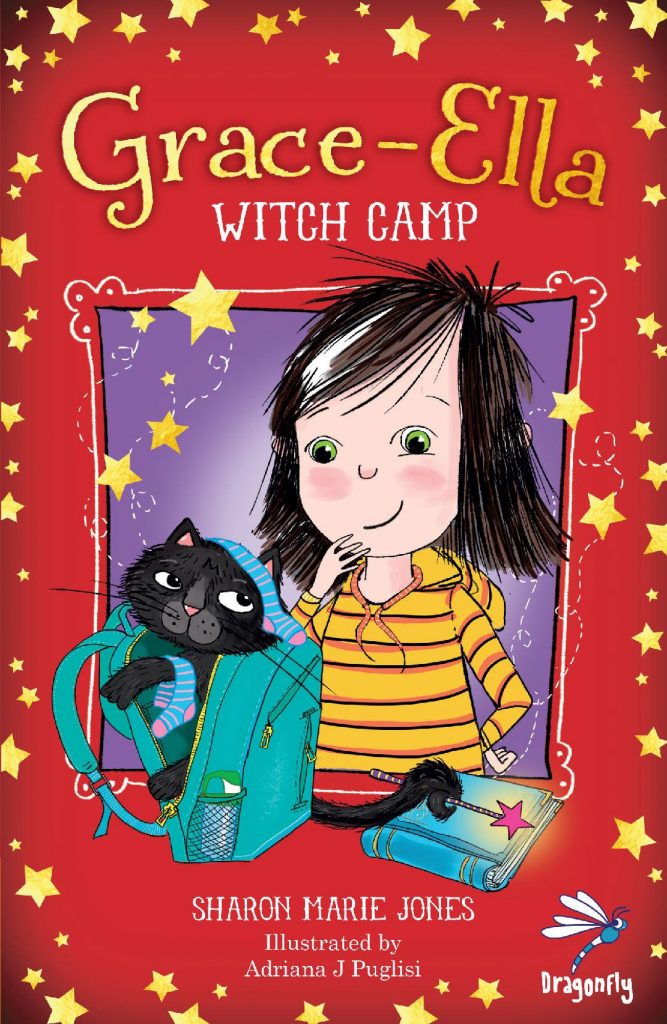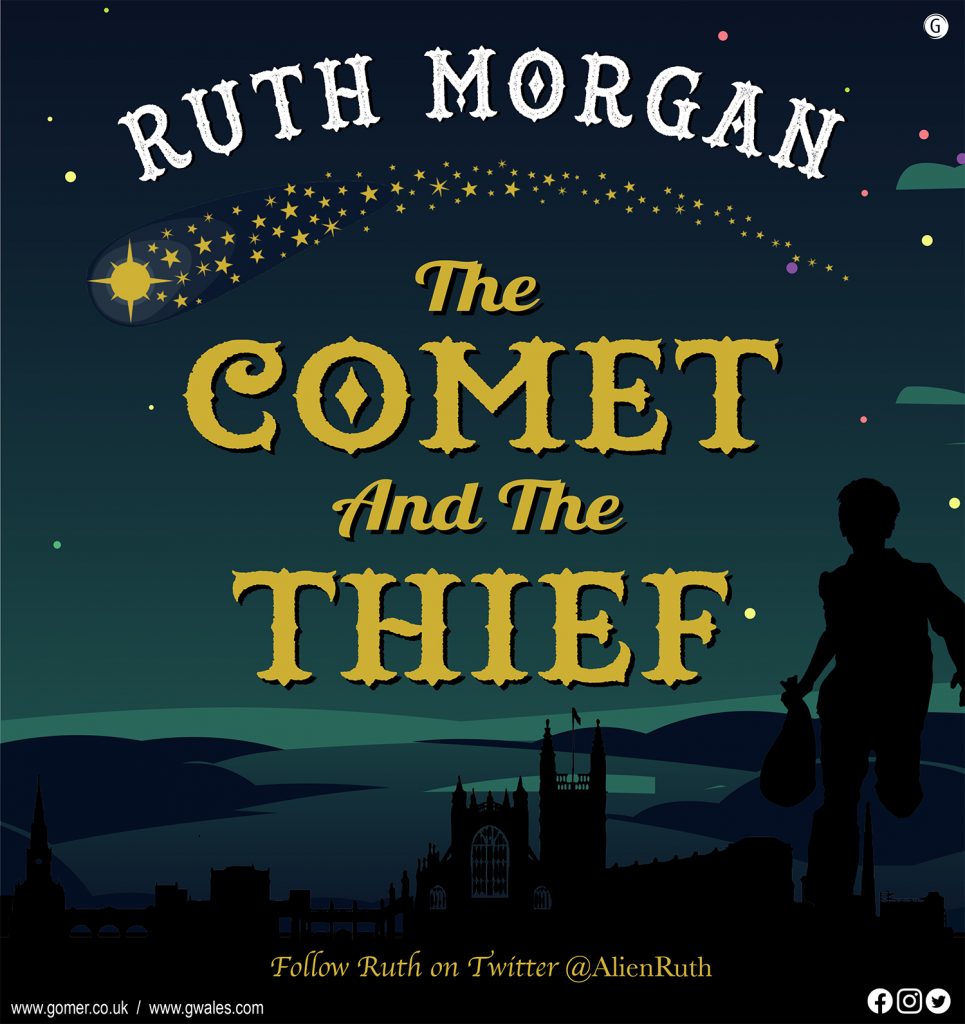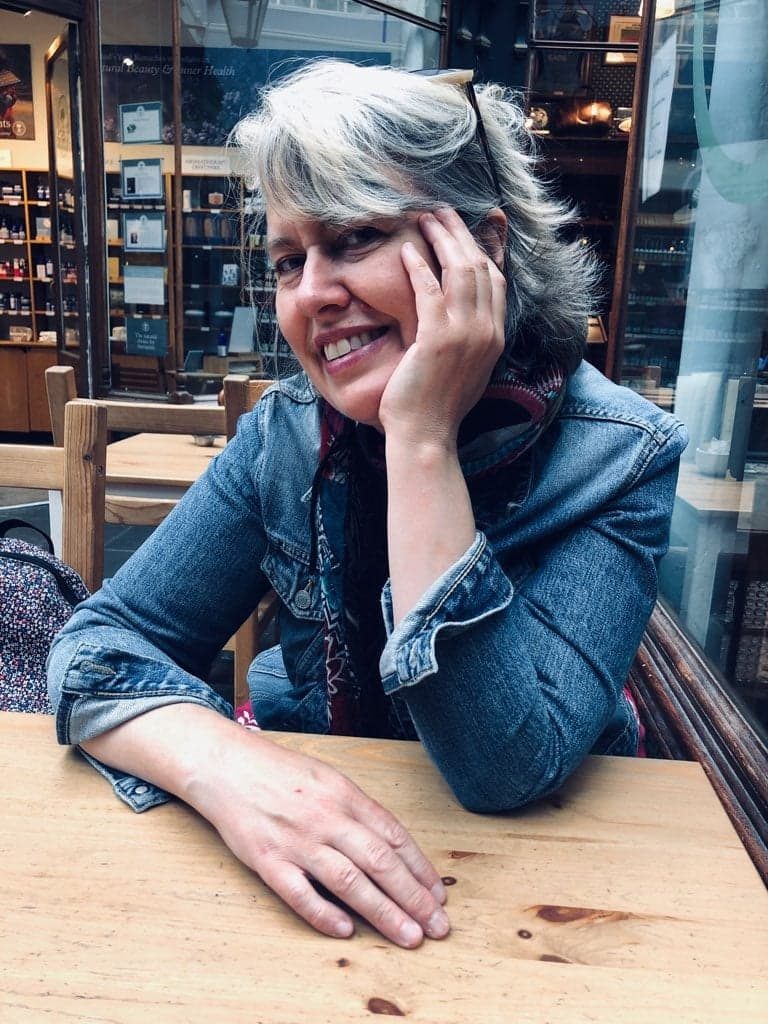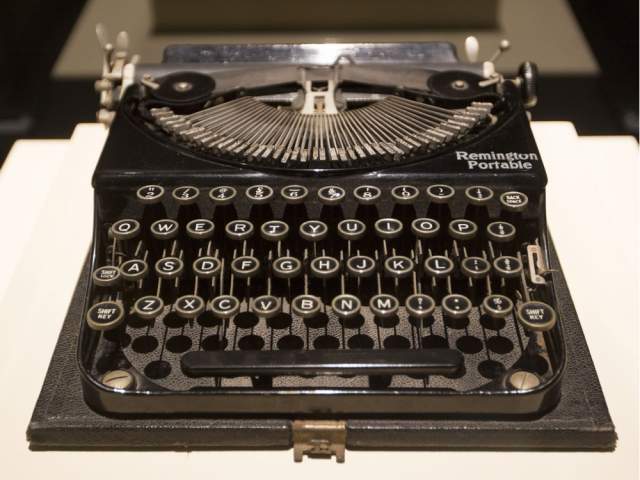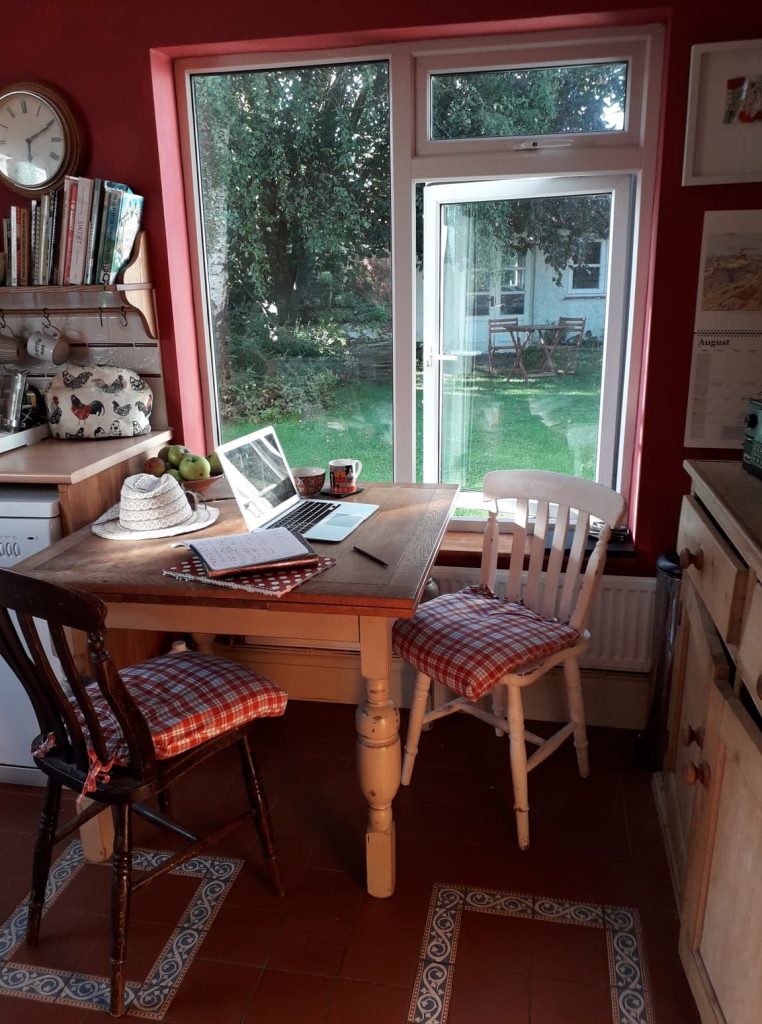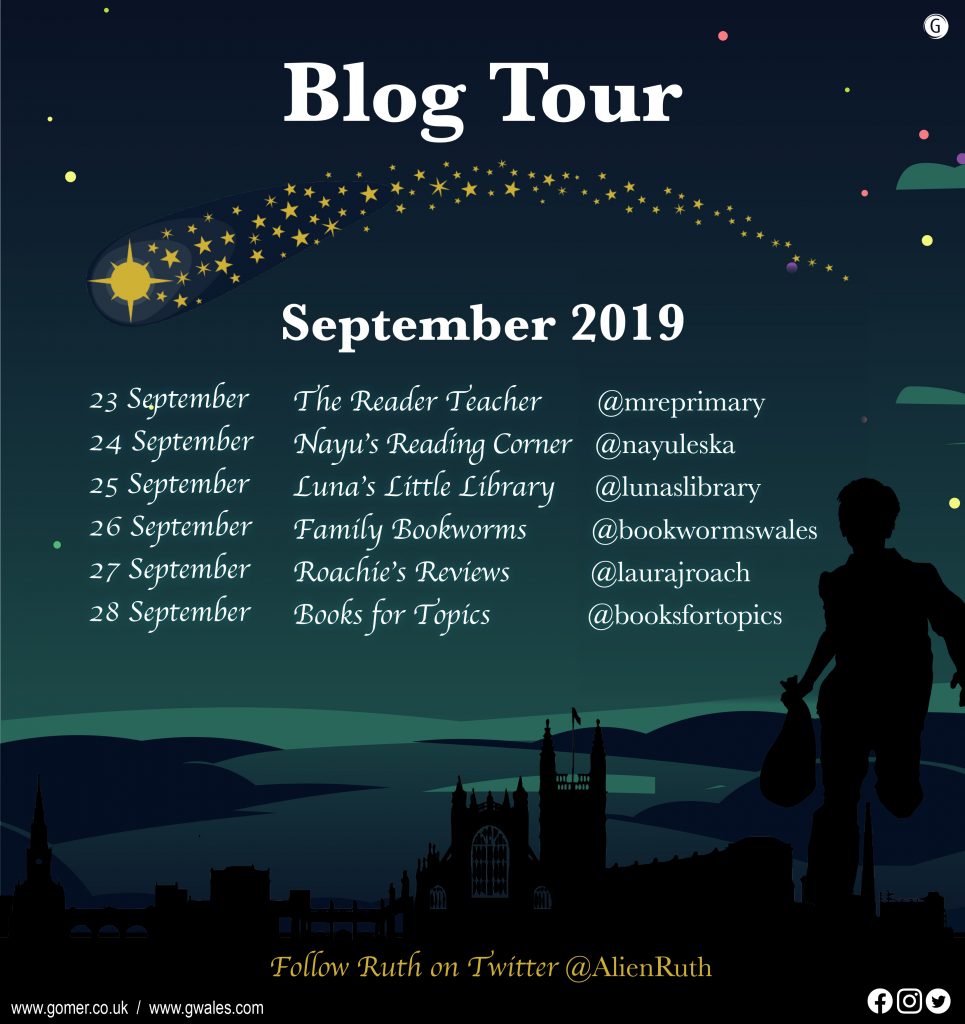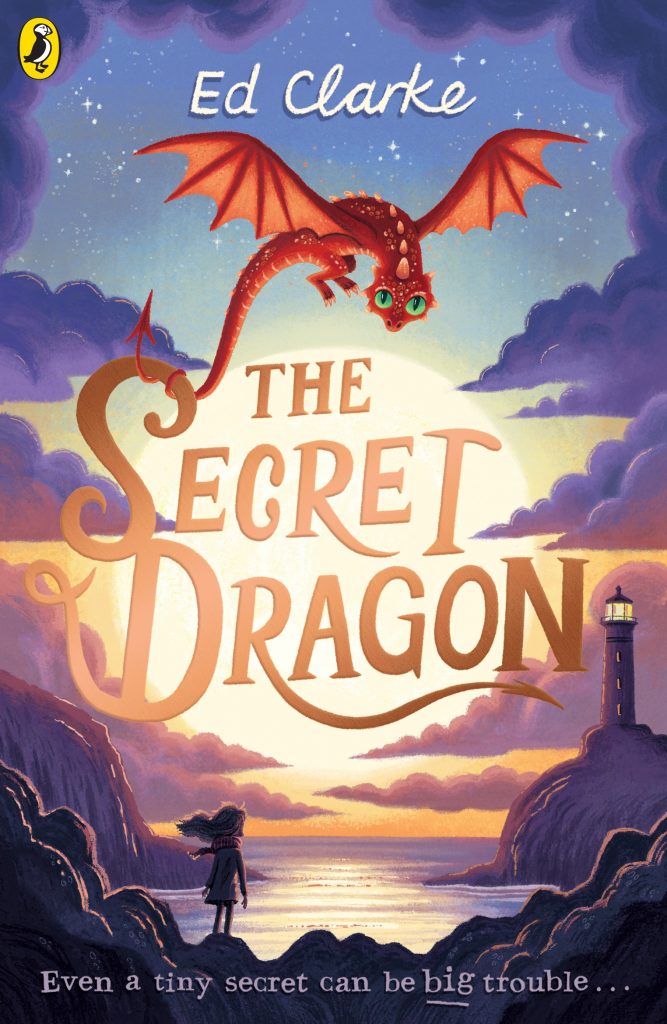Sharon Marie Jones, author of Grace-Ella: Spells for Beginners and Grace Ella: Witch Camp has kindly answered our questions as part of the Witch Camp Blog Tour. She grew up in North Wales and now lives near Aberystwyth with her family, close to the sea and countryside. Having worked as a Primary School Teacher for 13 years, Sharon is now a full time author.
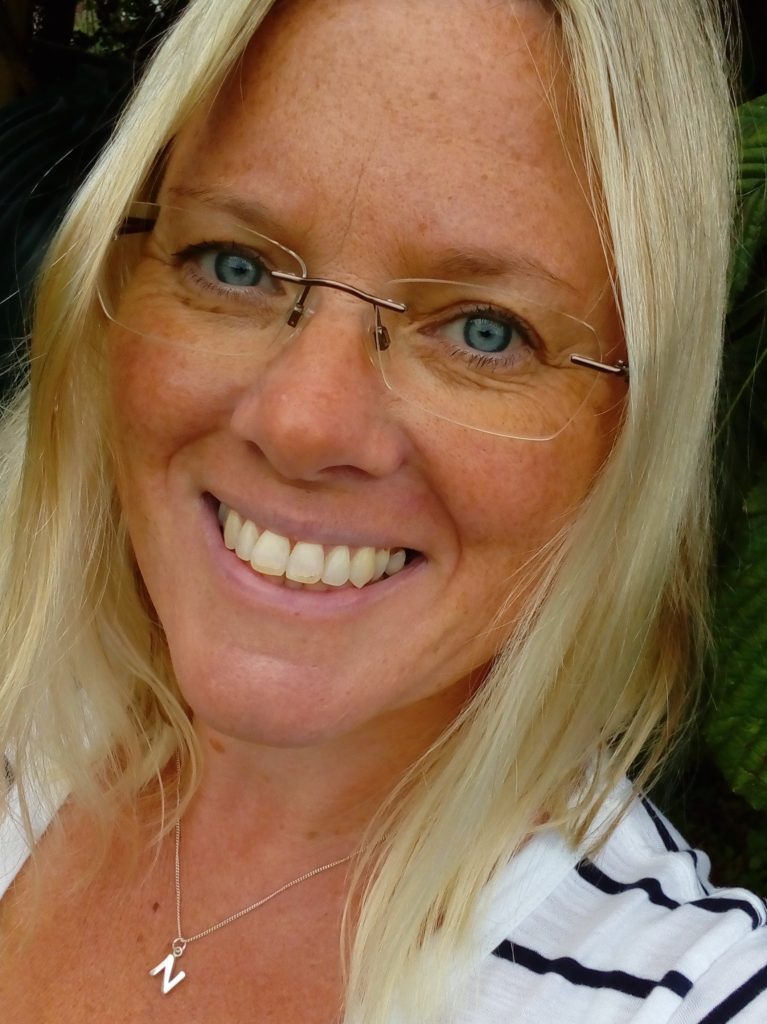
What are you reading at the moment?
I’m currently reading ‘The Girl who Speaks Bear’ by Sophie Anderson. I loved her first book, ‘The House with Chicken Legs’, so I couldn’t wait to start this one and it definitely doesn’t disappoint! It’s a magical mix of folklore and adventure, friendship and being true to yourself; utterly enchanting.
Could you tell us how you got into writing?
It has always been my dream to become an author, from a very young age. I loved writing stories and spent much of my early childhood living in my imagination! In Secondary School, I won the school’s R S Thomas prize for creative writing.
But once I decided on a career as a teacher, my job and life in general took over and writing was pushed to the back of my mind – but it was always there, lingering, never completely gone.
I was on my second maternity leave when I decided that I would chase that dream of being a writer. I sat down determined to write. I wrote a short story, which was placed second in a competition and published in Writers’ Forum magazine. This was a huge boost to my confidence. I then had a further seven short stories make the shortlist.
I was enjoying writing short stories but knew that my real passion was to write a book for children. I had just returned to my teaching job by then, and as was driving to work one morning, when the name Grace-Ella popped into my head. I pulled into a lay-by and started to scribble frantically in my notebook.
The following morning I set my alarm for 4.30am and I started to write my first Grace-Ella story. I continued like this, writing for a couple of hours every morning, before real life had to take over. It took me a year, by the end of which I was exhausted, but I had finished writing my first ever book. I sent it to Firefly Press with no expectation at all of hearing back from them … but after three months an email pinged into my inbox and my journey with Grace-Ella truly began.
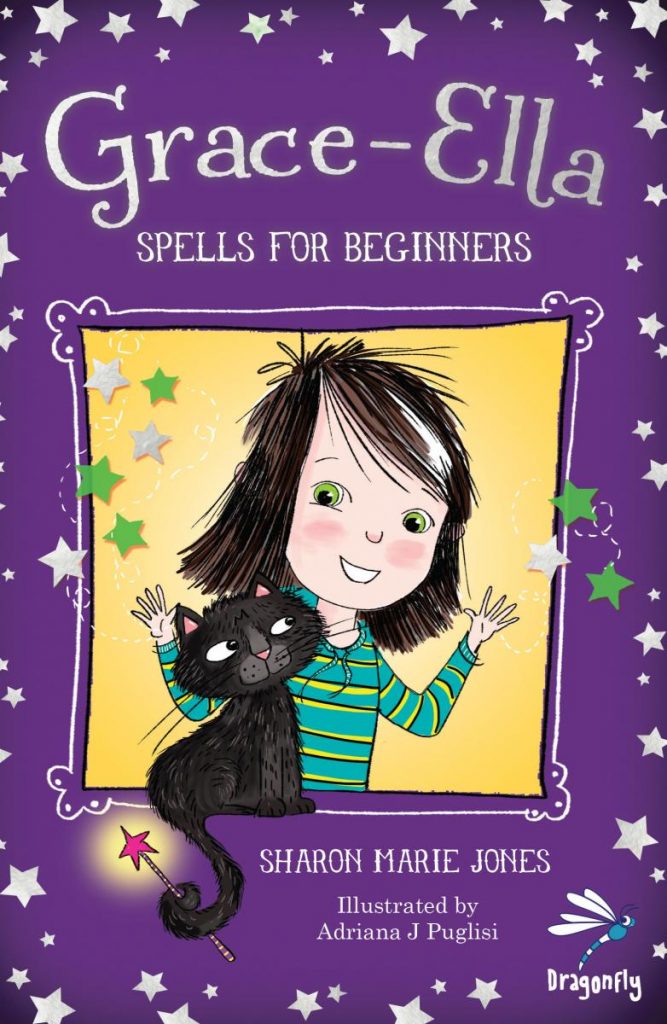
Why writing for children?
I think you just know if you want to write for children. It’s something intrinsic. I wanted to dive back into that imaginary world that I would escape to as a child. I wanted to let my imagination take over again and lead me on a magical journey.
Because children’s books are just that – they’re magical. I loved reading aloud to my class when I was a teacher; looking at the children mesmerised by the words, and loving the, ‘Oh, please just one more chapter’ chorus at the end of a reading session.
I knew once I started to write that my heart lay with children’s fiction. Seeing a child engrossed in a book is so wonderful and to think that a child could pick up a book that I have written and become lost between its pages is an amazing feeling.
Where and when do you write?
I write at home, in my office. I’ve decorated the room so that it feels relaxing and peaceful, a room that I enjoy being in. I can only concentrate fully on my writing when the house is empty and silent, so my writing time happens when my boys are at school.
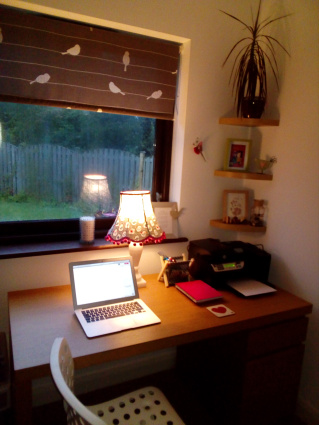
Now that I write full time, I don’t set my alarm for 4.30am! But my writing is at its best in the mornings, so I aim to be at my desk by 10am, after dropping my boys off at school and doing a quick tidy up of the house. I can usually ‘write’ for 3-4 hours – I say ‘write’ because I don’t necessarily mean I’m typing away continuously for 3-4 hours. There’s a lot of staring out of the window, allowing ideas to brew and scribbling notes in a notebook. It’s all part of the process of ‘writing’.
On days where the words are hiding from me and I know I won’t add anything to a story I’m working on, I’ll settle down to read a book and allow another author’s words to carry me away. Some days I need this break and find that I’m ready to get going again with my own story, the following day.
Who are your favourite authors for children?
As a child, my favourite author was Enid Blyton. I devoured her books. My favourite being ‘The Enchanted Wood’ and ‘The Faraway Tree’, which I read over and over.
Now … there are so many! There is such a wealth of children’s authors writing today, which is wonderful. I strongly believe that there is a book out there for every young reader. I have far too many authors I currently love, so I’ll choose the ones who I know for definite that I’ll always rush out to buy their next book:
- Eloise Williams – her writing is so beautifully atmospheric, I feel like I’m in the story with her characters
- Sophie Anderson – I love folktales and her books bring a new twist to old folktales and are utterly charming
- Lisa Thompson – she’s a master at tackling difficult issues, weaving them into a sparkling plot that always keep me gripped till the end
- Onjali Q Rauf – again, she tackles real-life issues perfectly, with wonderfully believable and relatable characters.
Grace-Ella is a witch in training. What drew you to her story?
I think it’s because it’s the kind of story I would have loved as a child. I was entranced by Enid Blyton’s magic, and discovered that I had my very own fairy door on the trunk of the crab apple tree at the bottom of our garden. If I closed my eyes and tapped on the tiny door three times, I would be transported to the kingdom of the Crabble Fairies.
I was always mixing up my own ‘potions’ in the garden – mixing wildflowers and berries with water in empty jam jars. I would line them up on the outside kitchen windowsill.
So once the name Grace-Ella popped into my head, I knew that she was going to be a magical character. Her story began to flow once I started to write the words. I didn’t plot the story, I let the story take me where it wanted to go. Grace-Ella is the girl I would have loved to have had as a friend when I was 9 years old.
Did you ever go to camp as a child?
No, I never went to a Camp as such. I was a painfully shy child and had low self-esteem and confidence. I loved school and was happy playing with my friends, but away from that security, I always stayed close to home.
I was a Brownie, and they went to Camp every year, but I was always too nervous to go. I do remember us going to Brown Owl’s home one evening where we toasted marshmallows on an open-fire. I remember it feeling magical – being wrapped up warm in the dusky darkness, the smell of smoke floating in the air and the sweet taste of the sticky marshmallows.
I spent a lot of time outdoors as a child. I loved pressing wildflowers after going for a walk in the woods with my dad. These memories came flooding back as I wrote ‘Witch Camp’.
Will there be more Grace-Ella?
I hope so! I still have plenty of adventures for her to go on, so fingers crossed…
How does Wales inspire you?
The first thing I loved about Firefly Press was that they were looking for stories for children aged 7-9 years, specifically based in Wales. Wales is rich in stories. As a child, I listened in wide-eyed wonderment to folktales about giants and the tylwyth teg.

The landscape is a constant source of inspiration. There are so many wonderfully wild places to walk, where stories whisper in the rustle of leaves. The setting for ‘Witch Camp’ is very much based on places I have visited. The map of ‘Witch Camp’ at the start of the book shows ‘The Old Stone Archway’, which is based on ‘The Arch’ at Devil’s Bridge, just outside Aberystwyth.
I often read about authors travelling the world on magnificent adventures, which then feed into their writing. For me, Wales is such a beautiful country and is full of inspiration for stories, I don’t feel the need to stray far. T Llew Jones, Wales’ most famous Welsh children’s writer, wrote stories based in Wales for over half a century!
I feel strongly that stories based in Wales should reach young audiences far and wide. Every child should experience the magic and wonder of this beautiful country, and one way for them to do that, is by reading stories from Wales.
One of your own mottos, as signalled on your website is “be proud of your achievements”. This comes across in Grace-Ella: Witch Camp. Was it a conscious decision to allow these messages to filter through your writing and Grace-Ella’s character?
I hadn’t even thought about that so no, it hasn’t been a conscious decision. I’m a perfectionist and my own worst critic in everything I do. As a child, I never felt quite good enough, even though I was often ‘top of the class’ in terms of my work. I’ve also taught children who found it difficult to feel a sense of achievement, often comparing themselves to others and in their minds, finding themselves lacking.
With Grace-Ella, I wanted her to be able to shine at something. She struggles a little with schoolwork and worries that she won’t be able to do her work well, so I wanted to give her something new that she would be good at.
I’ll always remember a young girl I taught, who felt her schoolwork wasn’t good enough and would get herself into a worried mess when having to do tests. She would compare herself to her sister and friends and feel that she wasn’t as good as them. I wanted to help her find that something that she sparkled at. It came when the class were put into groups to work on creating a stall for the school’s Summer Fair. One of the items her group decided to make was bunting. Once this girl started sewing, there was no stopping her! The other three members of the group worked on other items whilst she developed her sewing talent and made all the bunting herself. On her last day of school, she gave me a handmade cushion which was perfect in every way.
We all have the ability to shine at something, it’s just a matter of finding what that is.
What else should we ask you?
Can I do magic? Yes! I can make a coin disappear…
What comes next for Sharon Marie Jones?
Lots of published books I hope! I have stories other than ‘Grace-Ella’ that I want to write, and it would be wonderful for some of them to become published books.
But right now, what comes next for me is a cup of coffee and diving back into writing Grace-Ella Book 3…
Thanks again to Sharon for answering our questions! You can follow her on Twitter and should visit her website.
To read a full review of Grace-Ella: Witch Camp, click here.
